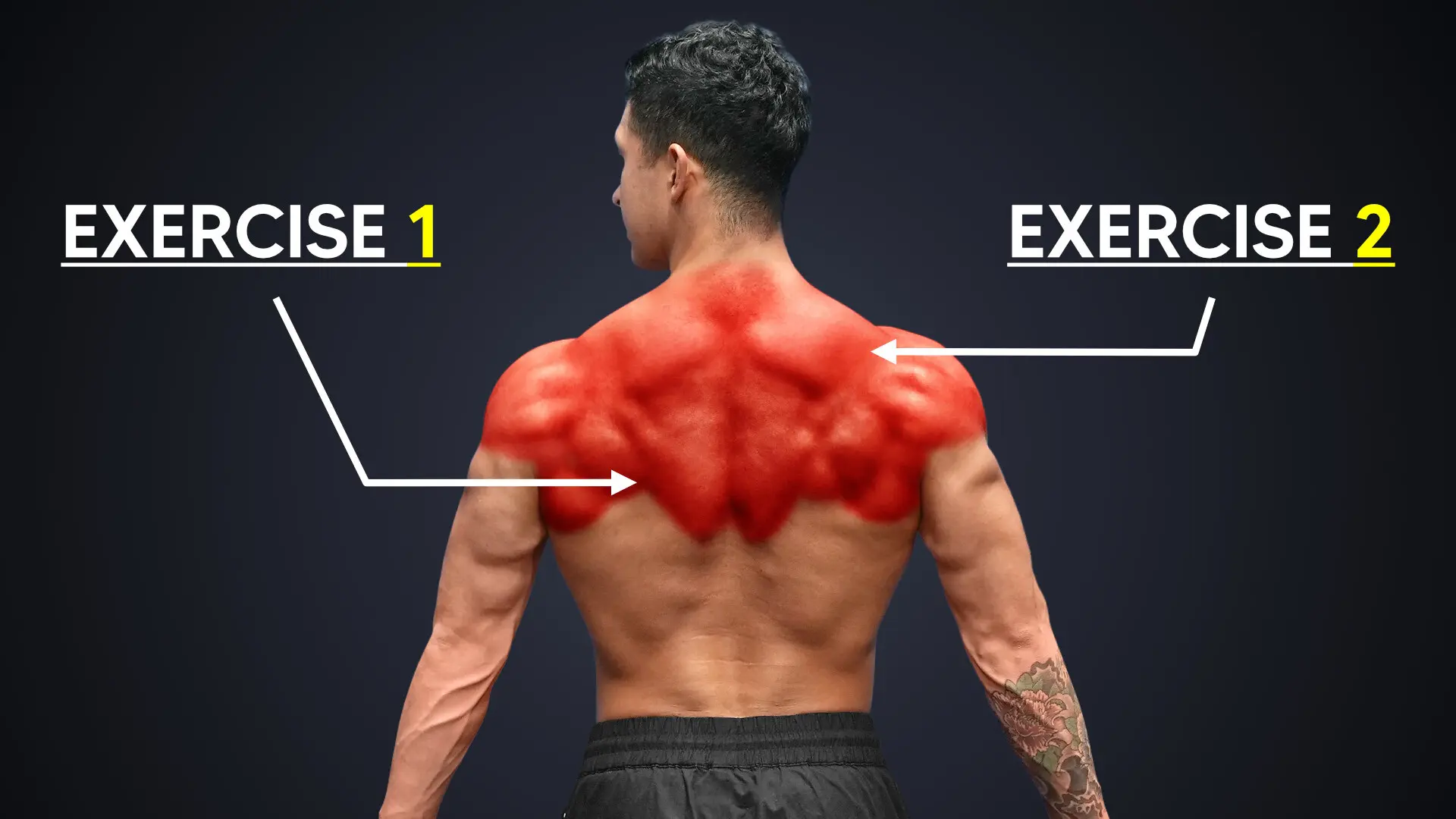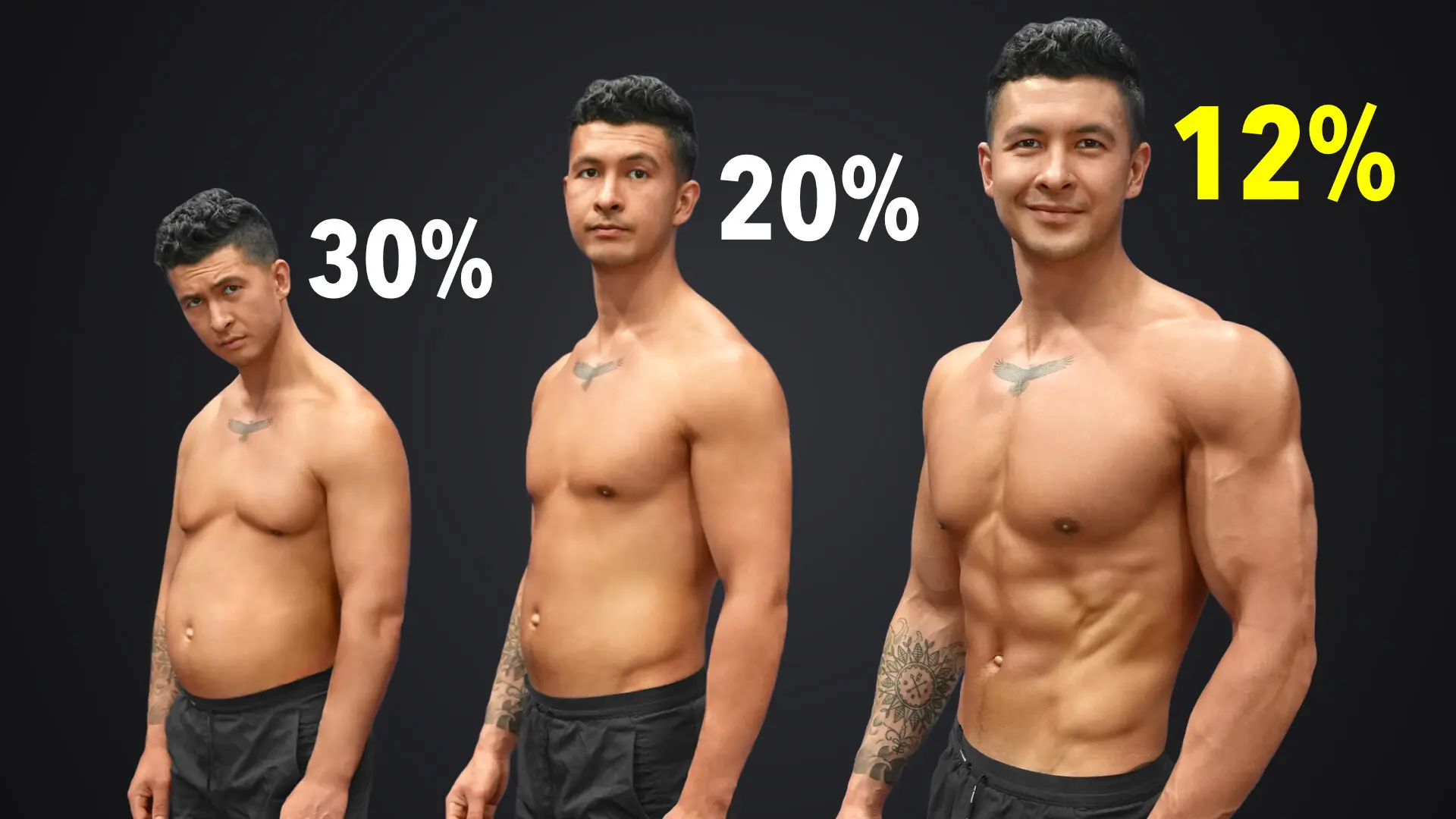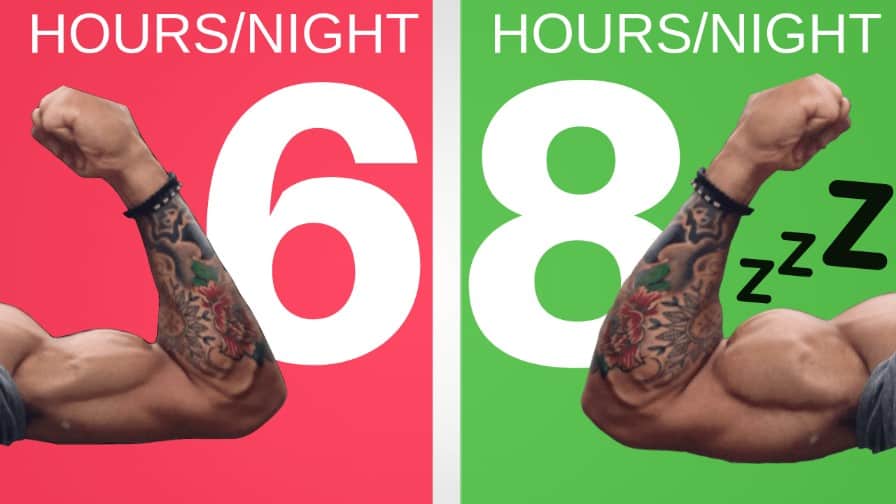
How Much Sleep Do You Need To Build Muscle? (9 Studies)
If you want to learn how to optimize your sleep to build muscle and lose fat as fast as possible... Then you need to read this article.
If there’s one aspect of building muscle and losing fat that’s most underrated, it’s definitely sleep.
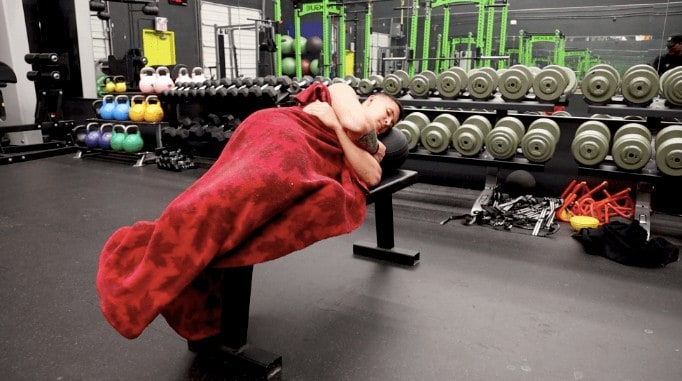
According to a recent poll by the National Sleep Foundation, roughly 63% of Americans say they aren’t getting sufficient sleep during the week.
...but the impact this has on your gains is likely much worse than you might think.
Before that: if you're looking for a training program that'll always help you train in the most optimal approach for muscle growth (including taking care of your sleep!), I've got just the thing for you. Every BWS program is designed to help you transform your physique in the most time-efficient manner. And best of all? It's all rooted in science. For more information on how BWS programs can help you to look better - FAST:
Click the button below to take my analysis quiz to discover the best program for you:
↓
Sleep And Muscle Growth: What Does Science Say
Believe it or not, sleep may be the exact reason why others seem to progress much faster than you are. Or why you just aren’t seeing the results you were hoping for despite putting in the work.
The findings of a 2010 study by the American College of Physicians for example helps put this into perspective.
Researchers split subjects into two groups:
- one that slept 8.5 hours per night (which is within the range of what most experts recommend)
- another group that slept only 5.5 hours per night (which as noted earlier is pretty standard for many Americans nowadays)
Both groups were then put on a regulated calorie deficit for two weeks.
The result?
Well, as expected, both groups lost the same amount of weight given that their calorie deficit was equated for.
But what’s interesting is when you look at the composition of the weight they lost...
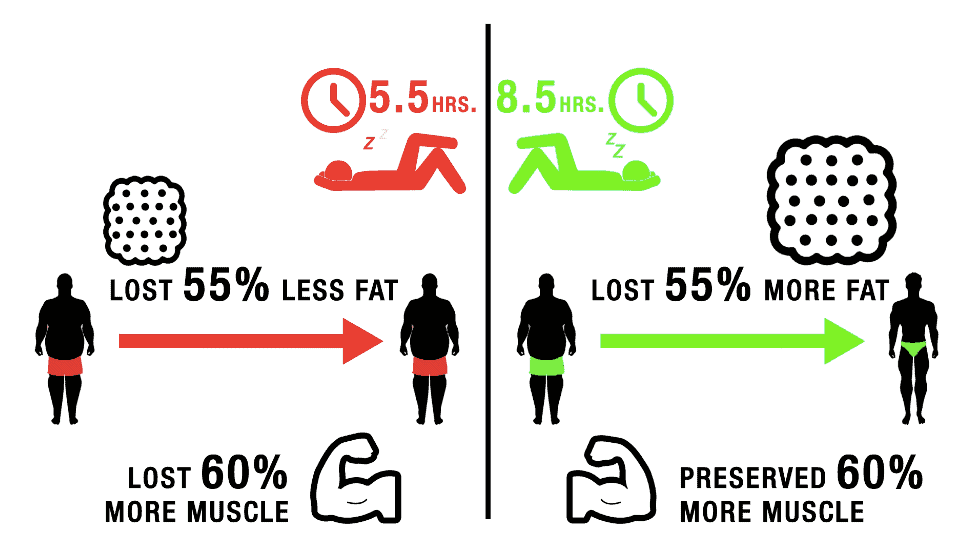
...the sleep deprived group lost 60% more muscle mass and 55% less fat than the group that got adequate sleep.
Therefore indicating that sleep seems to have a powerful effect on not only muscle recovery, growth, and retention but also fat loss.
Now although the researchers didn’t test why exactly this was the case, other research does provide some insight.
The Effect of Sleep On Gains
1. Sleep helps prevents muscle breakdown and promotes fat loss.
As shown earlier, sleep seems to have a prominent affect in preventing muscle breakdown and promoting fat loss.
Although the mechanisms behind this is relatively unclear, a recent 2018 paper helps shed some light on the topic. Researchers analyzed the effects of one night of no sleep on 15 young men.
Here's what their bodies experienced after that one night:
- their muscles already showed signs of increased protein breakdown
- their fat tissue had elevated levels of proteins and metabolites that are involved in promoting fat storage
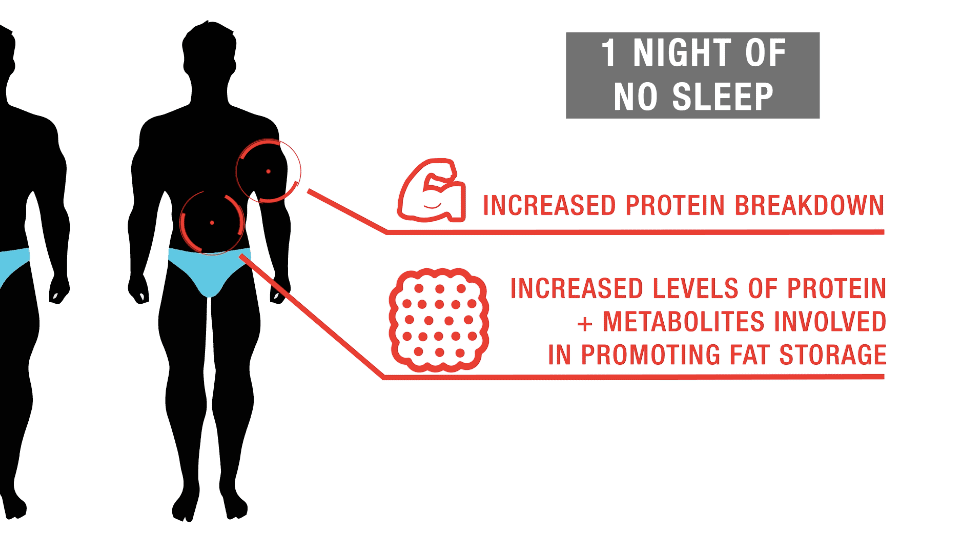
After just one night! Which may help explain the findings of the study shown earlier.
2. Sleep impacts your testosterone levels.
To make matters worse, it’s also well known that sleep deprivation causes a decrease in anabolic hormones like testosterone.
In fact, a 2015 paper found that:
Day-to-day testosterone levels were significantly decreased by 10 to 15% in young men who underwent just 1 week of sleep restriction to 5 hours per night.
The results can be seen in the graph below:
...given that testosterone is an anabolic hormone that plays a vital role in building muscle and losing fat, we can see this becomes a problem.
Really enjoy science-based insights like this? Then you'll absolutely love working with my team of highly-qualified trainers and nutritionists (plus myself!); in the process of guiding you through the process of achieving your dream physique in the time-efficient way possible, we'll also make sure you understand the science behind it all. Find out more here:
Click the button below to find out more about the 3-on-1 coaching program:
↓
3. Sleep affects your workout performance.
Not only does sleep affect your body on a cellular/hormonal level, but also significantly affects your workout performance.
In fact, research has shown that when sleep deprived the body tends to give up when it would otherwise normally be physically capable of pushing further.
Thus, you can see just how much of an impact sleep has on your gains.
...but just how much should you sleep in order to best support your muscle growth and fat loss efforts?
How Much Sleep Do You Need To Build Muscle?
Although this will vary individually, I’d suggest sticking with the American Academy of Sleep Medicine’s recommendation. They suggest that you aim to get roughly 7 to 9 hours of sleep. With more active individuals requiring closer to the higher end or even slightly above this range.
So if you haven’t been sleeping enough according to this, I’d highly suggest you make an effort to do so for the reasons previously discussed.
What About Naps?
Although research does suggest that daytime naps may be beneficial to increase total sleep duration during periods where inadequate sleep is unavoidable...
...they should not be used as a regular substitute for nighttime sleep since it just doesn’t provide quite the same effects.
The next best thing you can do though is to improve the quality of your sleep and decrease the amount of time it takes you to fall asleep. This is beneficial regardless of if you can get enough sleep or not.
And in order to best do this, there’s a couple things that research suggests is optimal:
Improving Sleep Quality & Total Sleep Duration
1. Improve Your Sleep Hygiene
Coming in on top is improving your sleep hygiene. Quite a few studies (one, two, three ) have shown this to be effective at reducing the time required to fall asleep and improve sleep quality.
Some recommended strategies include:
- avoiding any electronic use for at least 30 minutes before bed
- using your bedroom strictly for sleep (and where the magic happens)
- sticking to a consistent sleep/wake schedule everyday.
2. Avoid Caffeine Within 6 Hours Before Bed
Next, you’ll want to avoid ingesting caffeine shortly before bed.
One 2013 paper from the Journal of Clinical Sleep Medicine actually found that:
Moderate caffeine ingestion 6 hours before sleep reduced total sleep time by 41 minutes. And moderate caffeine ingestion just 3 hours before sleep reduced total sleep time by 63 minutes.
...meaning that for those working out later in the evening, you’ll probably want to avoid taking pre-workout or anything with a relatively high amount of caffeine.
But all in all, the biggest takeaway from all of these studies is that nothing beats making sure your head is on your pillow for enough hours each night.

So although you may get by just fine on less-than-optimal sleep, you’re likely doing a disservice to your hard earned gains in the gym.
Summary
To sum everything up for you, here are the main points to keep in mind:
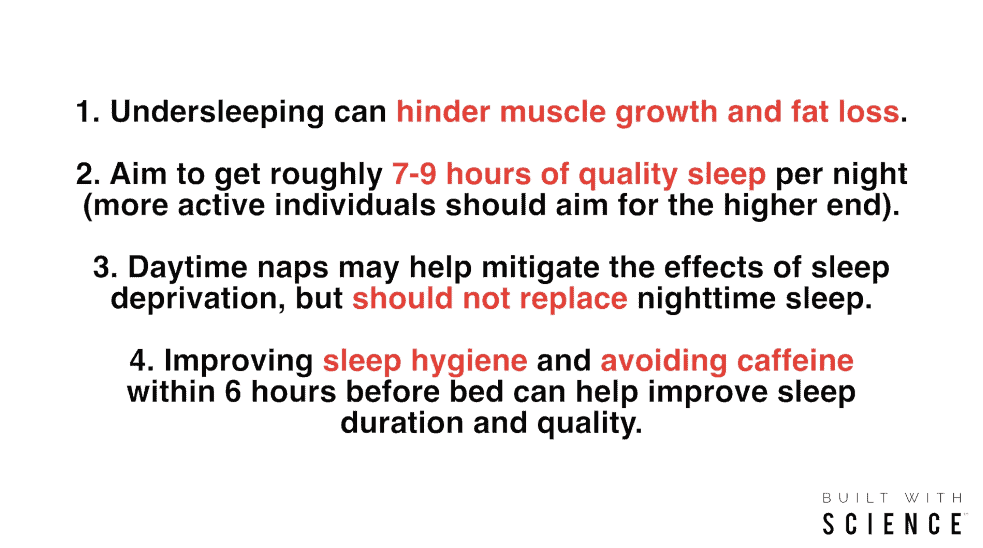
Now, sleep is just one of many factors (let alone your training and nutrition) that you'll want to optimize if you're seeking to build muscle and lose fat as quickly as possible.
And if you're looking for a workout and nutrition plan that does this for you by combining all the research I do into a step-by-step program catered to your body type...
...such that you can transform your body as efficiently as possible AND maximize your efforts in the gym...
Then join the thousands of other members today by taking my body type quiz I have up in order to discover which program and which approach is best for you:
Click the button below to take my analysis quiz to discover the best program for you:
↓
Anyways, that’s a wrap for this article – I hope you enjoyed it and found it useful! Don’t forget to give me a follow and connect with me on Instagram, Facebook, and Youtube as well for more informative content. Cheers!



